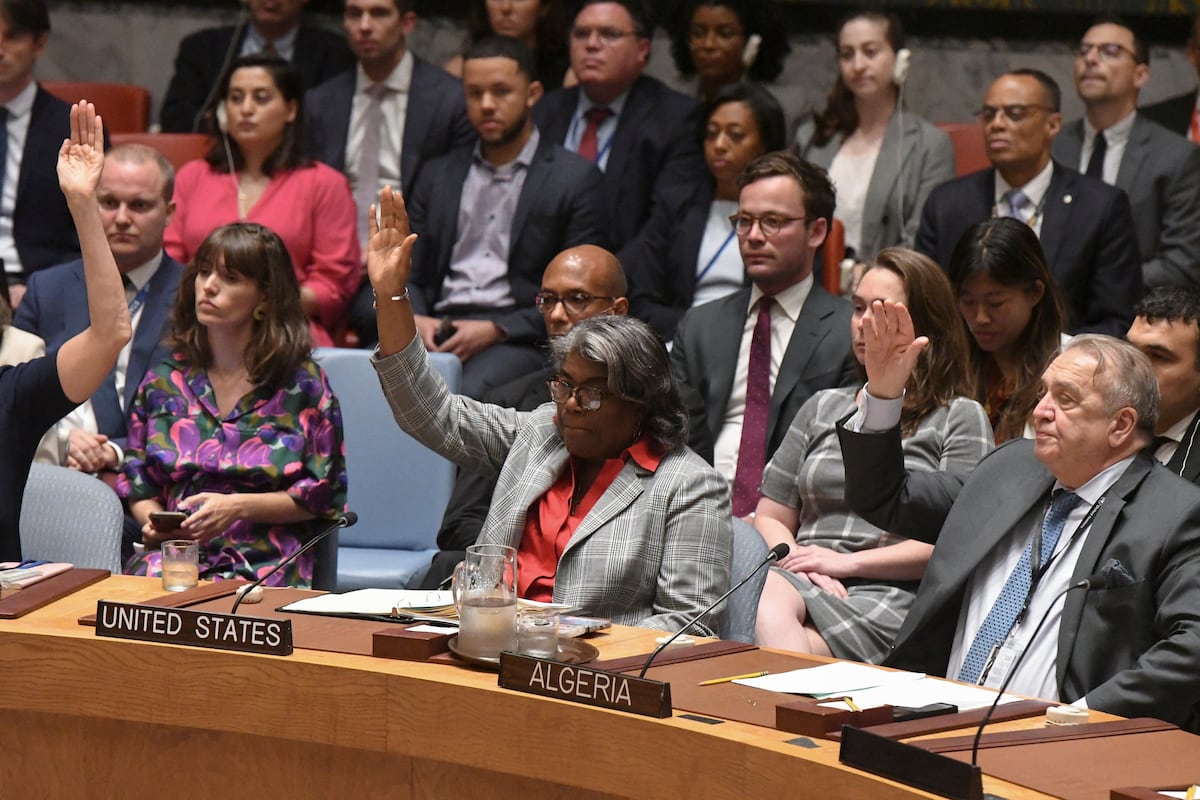UN Security Council Approves US-Led Peace Proposal for Gaza
The United Nations Security Council has passed a resolution endorsing a three-phase peace proposal for Gaza, initially detailed by President Joe Biden. The resolution was approved by 14 votes in favor, none against, with Russia abstaining. The US ambassador to the UN, Linda Thomas Greenfield, announced, "It is an opportunity to follow another route. Hamas must accept it." The proposal, aimed at bringing an immediate end to the hostilities, is a significant step towards a lasting ceasefire.
The comprehensive peace proposal has been met with mixed reactions. While the representatives of Algeria and other nations voted in favor, seeing it as a crucial step towards peace, Israeli diplomat Reud Shapir ben Naftali criticized Hamas for perpetuating the war. Naftali stressed that Israel will not engage in negotiations that could be exploited by Hamas to prolong the conflict.
International Efforts and Political Ramifications
The United States has leveraged considerable diplomatic resources to foster acceptance of the peace plan, which comes at a critical time for President Biden ahead of the upcoming elections. The plan involves a phased approach: a six-week temporary ceasefire to allow humanitarian aid and prisoner exchange, followed by a permanent ceasefire, and culminating in the reconstruction of Gaza.
US Secretary of State Antony Blinken has been actively engaging with Middle Eastern leaders, including Israeli Prime Minister Benjamin Netanyahu and Egyptian President Abdel Fattah al-Sisi, to secure their support. Blinken's efforts are part of a broader strategy to end the prolonged conflict, despite substantial internal opposition within Israel and complex political dynamics.
Though the peace resolution received a positive response globally, its implementation faces significant hurdles. The recent resignation of Israeli opposition leader Benny Gantz, who was a key member of the war cabinet, poses additional challenges. Hamas has signaled willingness to collaborate with mediators, but the tensions remain high.
Both parties are urged to implement the ceasefire terms without further delay. The situation remains critical as each day prolongs the suffering of Palestinian civilians. The Biden administration remains ready with alternative plans, including negotiating for the release of American-Israeli hostages if the broader agreement fails.
- Recent polls indicate that President Biden is trailing behind his opponent, Donald Trump, adding urgency to the diplomatic efforts. The Biden administration's approach towards Gaza and its repercussions on his re-election bid highlight the intricate link between domestic and international politics.
- The complexity of the situation is further exacerbated by the humanitarian crisis in Gaza, with essential supplies becoming increasingly scarce due to the ongoing blockade. The closure of the Rafah crossing point, a vital route for aid, has led the US and Egypt to discuss potential solutions to ameliorate the dire conditions in the region.






